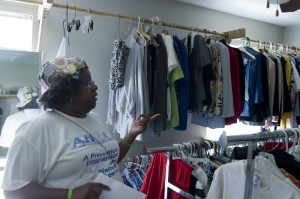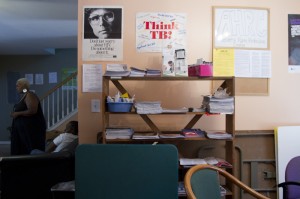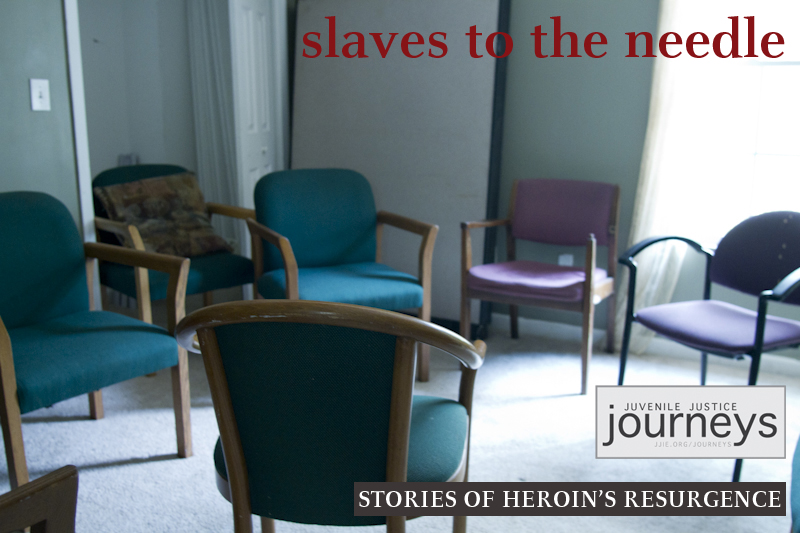
Bennett gives a tour of AHRC's donated clothing closet. Photo by Clay Duda
Proponents of harm reduction assert needle exchanges save lives. According to a United Nation report, one in 10 new cases of HIV worldwide are the result of intravenous drug use. Clean needles significantly reduce an intravenous drug user’s risk of contracting HIV or Hepatitis C. In Australia for example, where the government invested $243 million in needle exchange programs between 2000 and 2009, it is estimated that more than 32,000 HIV cases and more than 96,000 Hepatitis C cases were averted through the distribution of clean needles.
Not everyone thinks the benefits of needle exchanges outweigh the costs, however. Calvina L. Fay, executive director of the Drug Free America Foundation worries that giving drug users more needles leads to dangers for everyone else.
“We’ve had reports from cities,” Fay said, “where they’ve found large quantities of needles that have been improperly discarded on the streets, on the ground, which of course puts children at risk.”
Fay also worries that needle exchanges are focusing on the wrong issues and “aiding and abetting” the drug users’ addictions.
“They are giving out large quantities of needles but they are not being proactive in getting that person to engage in a treatment process that would move them to abstinence,” she said. “It’s not the compassionate thing. The compassionate thing would be to spend that money on more treatment beds and help people get drug-free.”
But Bennett said drug users wouldn’t seek out treatment until they’re ready. Telling them to stop using doesn’t work, she said. In the meantime, AHRC — and needle exchanges nationwide — are helping the user to remain as healthy as possible until they are ready for treatment.
“The person that is using sets their own goals,” Bennett said. “When they are ready we get them treatment. We are enabling people to live a healthier, wiser life,” Bennett said.

Brochures and educational pamphlets and posters in the AHRC office. Photo by Clay Duda
AHRC faces a number of barriers to fulfilling its mission, however. The law, for instance, isn’t necessarily on AHRC’s side. In Georgia, distributing hypodermic needles is illegal. But with a creative reading of the code and the help of authorities looking the other way, AHRC has survived for 17 years.
According to Bennett, the law allows handing out needles for a “legitimate medical purpose,” an affirmative defense should questions of legality ever be raised. Police have occasionally stopped by the street outreach asking questions, but no one has ever been arrested or cited, Bennett said.
AHRC is also only one small organization in a big city and an even bigger state, both fighting the ravaging effects of heroin abuse. Despite being the only needle exchange in Georgia, its budget and its effective reach is small. AHRC is a neighborhood center. Bennett said they hope to expand in the future if they can obtain more funding. Until then, intravenous drug users in Georgia or Atlanta looking for a safer high have to make their way to the Bluffs to visit AHRC.
